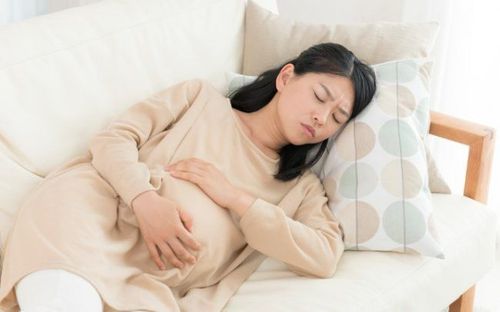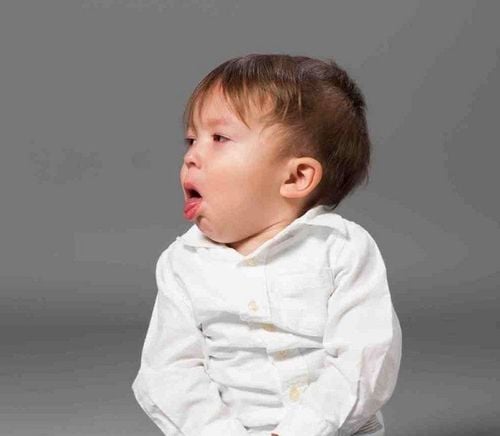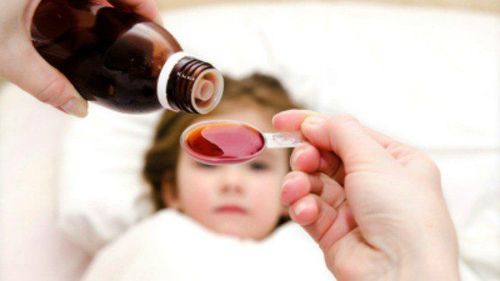This is an automatically translated article.
This article is professionally consulted by Master, Resident Doctor Dang Thi Ngoan - Pediatrician - Neonatologist - Department of Pediatrics - Neonatology - Vinmec Ha Long International Hospital.If upper respiratory tract infections are not treated properly and promptly, it will lead to lower respiratory tract infections, adversely affecting health. One of the serious variants is death due to co-infection with lower respiratory tract disease, and they are self-aggravating.
1. What are upper respiratory tract infections in children?
The upper respiratory tract includes the nose, pharynx, sinuses, pharynx and larynx. Therefore, an upper respiratory tract infection is an inflammation of one or more organs of the upper respiratory tract. This is more common than lower respiratory tract infections.
2. Symptoms of upper respiratory tract infection
The most common symptom is fever, children often have high and severe fever, body temperature can rise to 39-40 degrees Celsius, accompanied by symptoms such as conjunctivitis, photophobia, red eyes, pain, itching. and tears, ... Usually the above symptoms will improve after 7-10 days, the child will quickly recover. Runny and runny nose, with the characteristics of abundant, clear, dilute, no pus and no bad smell. Cough is also a symptom that appears in most of the upper respiratory tract infections, often with a severe cough or dry cough, cough with sputum. Children anorexia, vomiting, digestive disorders. Children may cry at night if they have otitis media, sinusitis. Dyspnea is a nonspecific symptom of upper respiratory tract infection. However, in the case of a child with laryngitis, he or she may have difficulty breathing. Shortness of breath is a very rare symptom, but it is often a sign of serious illness, the baby must snort, wheeze... if not treated well, the disease will turn to chronic upper respiratory infection.
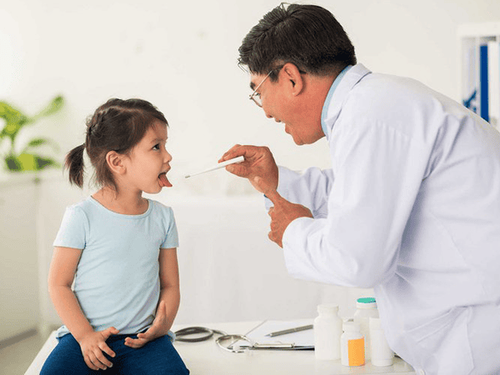
3. Are upper respiratory tract infections dangerous?
If upper respiratory tract infections in children are not treated properly and promptly, they will lead to lower respiratory tract infections, adversely affecting health.
One of the serious variants is death due to co-infection with lower respiratory tract disease and they aggravate each other.
Therefore, with a very common disease such as a cold in the winter, it can lead to pneumonia in children. In the case of severe upper respiratory tract infection, the bacteria can easily cause dangerous complications such as encephalitis, heart inflammation, glomerulonephritis, and acute rheumatic fever.
4. How to prevent upper respiratory tract infections
Keep children warm when the weather turns cold, especially when taking them outside in the evening or early morning; keep warm in important positions such as feet, hands, chest, neck, head. Breastfeeding from the first hours after birth and maintaining until 2 years of age Weaning at the right time with a reasonable diet For children to drink more water, eat enough nutrients, increase green vegetables and fruits to increase resistance For children to fully immunize
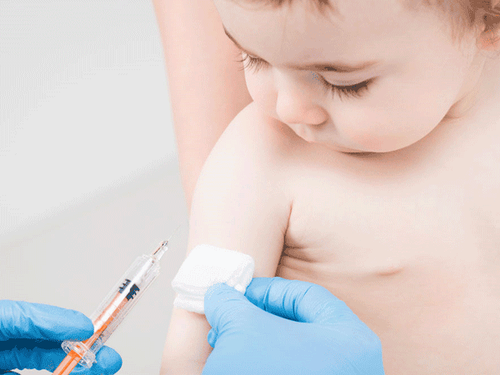
Keep the child clean, clean the nose and throat daily with physiological saline solution Do not let children eat or drink too cold food to avoid colds Do not expose to environments with cigarette smoke and dust, keep home The door is always open and clean. Avoid bringing children to crowded places during the epidemic season. Wear a mask when in contact with sick people Early detection of upper respiratory infections in children for timely medical advice Parents when they see any signs of upper respiratory tract infections in children You should take your child to the doctor. The doctor will diagnose, evaluate and base on the disease condition to decide on a specific treatment method.
As a key area of Vinmec Health system, Pediatrics Department always brings satisfaction to customers and is highly appreciated by industry experts with:
Gathering a team of top doctors and nurses in Pediatrics : consists of leading experts with high professional qualifications (professors, associate professors, doctorates, masters), experienced, worked at major hospitals such as Bach Mai, 108.. Doctors All doctors are well-trained, professional, conscientious, knowledgeable about young psychology. In addition to domestic pediatric specialists, the Department of Pediatrics also has the participation of foreign experts (Japan, Singapore, Australia, USA) who are always pioneers in applying the latest and most effective treatment regimens. . Comprehensive services: In the field of Pediatrics, Vinmec provides a series of continuous medical examination and treatment services from Newborn to Pediatric and Vaccine,... according to international standards to help parents take care of their baby's health from birth to childhood. from birth to adulthood Specialized techniques: Vinmec has successfully deployed many specialized techniques to make the treatment of difficult diseases in Pediatrics more effective: neurosurgery - skull surgery, stem cell transplantation. blood in cancer treatment. Professional care: In addition to understanding children's psychology, Vinmec also pays special attention to the children's play space, helping them to have fun and get used to the hospital's environment, cooperate in treatment, improve the efficiency of medical treatment. Doctor Dang Thi Ngoan used to be a lecturer in the Department of Pediatrics - Hai Phong University of Medicine and Pharmacy. Having been granted certificates in Pediatrics at home and abroad such as: Westmead Hospital, Australia; Hai Phong Medical University. Currently, Doctor Ngoan is a pediatrician - neonatologist at the Department of Neonatology at Vinmec Ha Long International Hospital.
Please dial HOTLINE for more information or register for an appointment HERE. Download MyVinmec app to make appointments faster and to manage your bookings easily.





